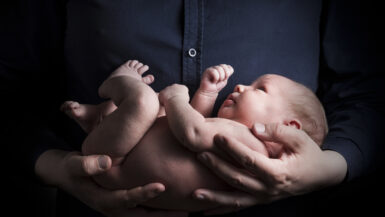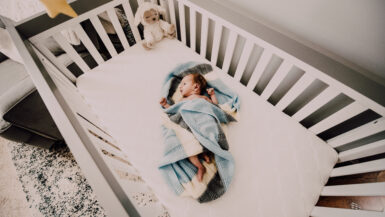Having a baby is one of the most exciting and overwhelming experiences of a lifetime. Preparing logistically for the arrival of the little one can be an overwhelming and anxiety-provoking process, but it doesn’t have to be. With a little bit of planning, you can easily get ready for the baby’s arrival. In this article, we’ll discuss the logistics of preparing for a new baby and how to make sure you have everything ready in time.
Creating a Nurturing Nursery
Before welcoming your new bundle of joy, it is important to have all the necessary baby supplies for the first few weeks. You should always have extra diapers, wipes, bottles, burp cloths, and other items on hand to make sure you can take care of your baby and their needs. If you plan to formula feed, it is a good idea to stock up on formula if you can find it in your area, or you can buy it online.
Creating a Safe Space
Safety should always be a top priority when planning for the arrival of a new baby. Checking for any potential hazards in your home is essential such as cords, uncovered outlets, small objects, etc. Making sure your baby’s crib is set up in a safe area of your home is also important. If your baby’s room has been freshly painted, remember to wait until all of the fumes have dissipated before bringing your baby in.
Setting Up Essential Equipment
Essential equipment such as a swing, thermometer, diaper pail, monitor, and carrier are must-haves when preparing for a baby. You should also ensure that you have some kind of bassinet or crib set up where your baby will sleep. Make sure to read all the user manuals, and check your device regularly for any recalls. It is important to establish a nighttime routine and to make sure to use a safe sleep environment if you plan to co-sleep or if your baby is bed-sharing.
Stocking Up On Essentials
Baby clothes can be quite expensive, so it is important to stock up on items like onesies, sleepwear, and other basics. If you are using cloth diapers, you should make sure you have at least a dozen of them and enough detergent to last for a couple of weeks. Also, keep in mind that babies go through a lot of diapers, so it is always a good idea to have a few packs of disposable diapers on hand in case you run out of cloth ones.
Installing Baby-Proofing Solutions
Baby-proofing your home is essential for the safety of your little one. Investing in stair gates, cabinet and drawer locks, outlet covers, and other safety accessories will give you the peace of mind knowing that your baby is protected when they start crawling or walking. You should also ensure that any windows or balconies have screens and/or bars to prevent any accidents.
Prepping for Absorbing Mess
Babies are naturally messy, so getting some washcloths and towels will come in handy for wiping up any messes. Having a space to put a changing pad, as well as a bin for diapers and wipes, is also important for convenience. It is a good idea to also have a laundry basket dedicated to just baby items so you can easily keep track of them.
Ensuring Proper Lighting
When setting up a nursery, it is important to make sure that the room is well-lit and comfortable. Installing blackout curtains or blinds might be a good idea so that the room is dark enough for naps during the day. It is also recommended to use either soft white lights or a dimmer switch if you plan to check up on your baby at night.
Must-Have Baby Items
When preparing for a baby’s arrival, the nursery is often the first priority. Essential items needed to make the nursery a cozy space for the baby include a crib, a changing table and enough storage space for all of their clothes and diapers. A comfortable chair for rocking and nursing the baby is also a must-have. It’s worth investing in a quality mattress, as babies spend so much time in the crib.
Clothing Essentials
As far as clothing goes, it’s essential to have enough onesies, sleepsuits, hats, socks and mittens. Babies can grow very quickly, so it’s important to purchase items that will suit their changing sizes, such as sleepsuits with poppers and adjustable waist bands. Additionally, it’s a good idea to invest in some season-appropriate items, such as a winter coat and snow boots for cold seasons.
Important Feeding Items
Feeding items for a baby can differ based on whether the family will be bottle feeding or breastfeeding. For those breastfeeding, a comfortable nursing chair and a breastfeeding cushion are both essential. Those bottle feeding will need several sterilization systems, bottles and teats, a good storage system and a bottle warmer.
Necessary Bathing and Hygiene Items
Baby hygiene is extremely important, so it’s essential to have the right products to keep the baby clean and healthy. A baby bath, suitable shampoo and body wash, cotton wool and a thermometer for monitoring bath water temperature should be among the items necessary for bath time. Additionally, an infant nail clipper is necessary to keep their nails from getting too long. And, a comb and brush set will help keep their hair nice and tidy.
Other Baby Items
Other must-have items for a baby include a car seat, baby stroller, a selection of toys and play mats and enough blankets and towels for the baby. It’s also beneficial for parents to have some basic medical supplies on hand, such as a thermometer, teething gel, nasal aspirators and medicine dispensers.
Having the right supplies and equipment can make a big difference in the transition to parenthood. With the right preparation, parents can be sure their baby has all of the needed items for a comfortable and safe home environment.
Making Childcare Arrangements
When it is time to welcome a new baby, parents also need to begin making childcare arrangements. There are several options available, including daycare centers, home care, nannies, and family members. It is important to research each option thoroughly and decide which is the best fit for your family.
Daycare Centers
Daycare centers are a popular option for parents who are returning to work after the birth of their baby. It is important to research daycare options in the area to ensure that centers are safe and of high quality. Consider speaking to other parents who have used daycare centers in the area, and make sure to ask questions about teacher-to-child ratios, cleanliness, childcare philosophies, safety and security procedures, and emergency protocols.
Home Care
If parents would prefer to have their child cared for in the home, a nanny or home care provider may be the best option. Researching and interviewing prospective nannies is important for making sure that the nanny is a good fit for the family and the baby. It is important to draw up a nanny contract, including details about wages, vacation time, and other aspects of the job.
Family Care
Family members who are available and capable of providing childcare can also be a great option. This can be a budget-friendly option, and can help provide a sense of continuity and familiarity to the baby. Consider setting expectations, boundaries, and adjustments in the contract. This can help all parties involved feel secure and respected throughout the duration of the arrangement.
Choosing the Right Option
When researching childcare options, it is important to prioritize safety, comfort, and affordability. Once parents have narrowed down the options and feel they have found the best fit, they can relax and focus on bonding with the new baby.
Financial Planning
Having a baby is an exciting time, but it’s also important to be prepared for the financial costs that come with the little bundle of joy. Making sure you have a solid financial plan before your baby arrives can help ensure that you are able to provide for your little one before, during, and long after their birth.
Making a Budget
Making a budget is the first step in planning for your baby’s arrival financially. It’s important to take into account all of the costs associated with the arrival of a newborn. These may include hospital bills, maternity leave, childcare, and other expenses that you may not have considered. Once you have an idea of the cost associated with your baby’s arrival, you can begin creating a budget that will help you keep track of your expenses.
Setting Money Aside
Once you’ve created your budget, it’s important to start setting aside money. It’s important to save as much money as possible before the baby arrives. This way, you can make sure that you have the funds available to cover any surprise expenses. Make sure you have enough saved to cover the costs of an emergency room visit, unexpected bills, and any other surprise costs.
Planning for Maternity Leave
Having a baby can be a joyous experience, but it can also be expensive. If you’re employed, it’s important to plan for maternity leave. Make sure you understand your employer’s maternity leave policy, and plan accordingly. Consider saving money in advance to cover your living expenses while you’re on leave, or look into government programs that may help you during this time.
Getting Insurance
Having insurance is essential when it comes to preparing financially for a baby’s arrival. If you’re employed, you may already have health insurance that covers your baby. If not, it’s important to look into health insurance options as soon as possible. There are many affordable health insurance plans that can help you cover the costs associated with your baby’s healthcare needs.
Talking to a Financial Professional
Talking to a financial professional can help you get the most out of your financial plan before your baby arrives. A financial professional can help you create a budget, invest in the right strategies, and save for the future. They can also help you identify potential tax savings and maximize your savings potential.
Preparing for the arrival of a baby can be an exciting time. However, it’s important to be prepared financially for any expenses that may arise. By creating a budget and setting money aside, getting insurance, and consulting a financial professional, you can ensure that you are well-prepared to provide for your little one before, during, and after their arrival.
Setting Up a Baby Registry
Preparing for a baby’s arrival involves ensuring you have everything necessary for the little bundle of joy. One way to help you get organized and make sure you have all the essentials is to create a baby registry. A baby registry helps friends and family find gifts for the baby and can provide peace of mind when it comes to getting prepared before the big day.
What to Include on the Baby Registry
From clothes and diapers to nursery furniture and car seats, the baby registry can include a variety of items. When building the list of items, consider items that will make life a little easier for baby and parents, such as a bouncy chair or playpen. Don’t forget items such as diapers, wipes, bottles, and blankets, as well as toys and books for the baby to grow and develop.
Choosing Where to Register
There are several stores that offer baby registries, so you may consider registering at multiple stores to give friends and family a variety of options. Common baby registry stores include traditional department stores, baby retailers, and online stores. Keep in mind that each store may offer different benefits and discounts to registered members, so it’s important to read the fine print on the baby registry before signing up.
Generating a Baby Registry List
Creating a list of items for the baby registry can be an overwhelming task. Fortunately, baby registry checklists are available to help generate ideas and provide a guideline of what items to include. You can also ask friends and family or even your healthcare provider to get advice on items to include in the registry.
Using Online or Printable Registries
After creating the list of items, you may choose to set up an online baby registry or use a printable registry. Online registries tend to be easier to manage and can make the shopping process more convenient for gifters. Online registries also have the added benefit of enabling you to keep tabs on what has already been purchased.
Getting the Word Out
When the registry is ready, it’s time to spread the word. Friends and family will need to know where you are registered in order to purchase the items on your list. You can let people know via email, social media, or a simple phone call. A printed card or message can also be included in baby shower invitations to let guests know about the registry.
Creating a baby registry is one step to help ensure you have all the essentials for the new arrival. Preparing a list of must-have items, selecting where to register, and letting people know are all important steps that can make the arrival of your baby that much more special.
What to Keep In Mind After the Baby’s Arrival
Once the baby arrives, it is important to keep in mind that the work of preparation is not done. Taking care of the newborn will require a lot of patience, attention, and energy. It is beneficial to be very organized in one’s life in order to manage the challenges of a newborn, such as obtaining the necessary supplies, cleaning, cooking, and making sure there is enough time to rest and relax. Additionally, it is important that the parents make sure to take time for themselves and take some time out for their relationship with each other. With a bit of preparation, a new baby can bring more joy and satisfaction than ever imagined.





Leave a reply